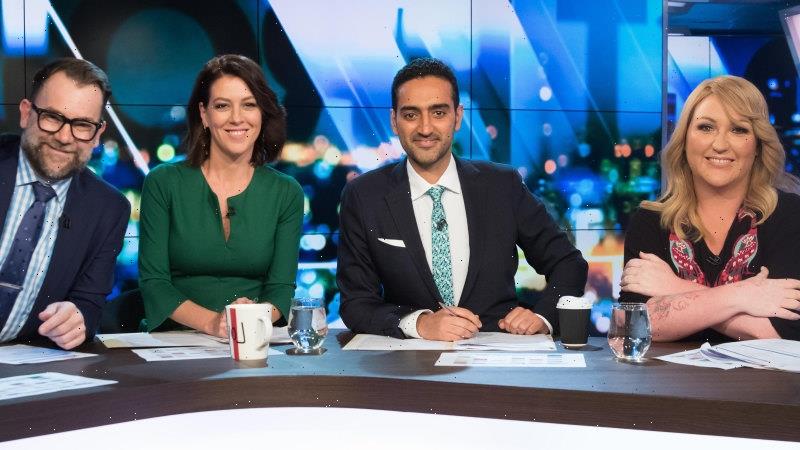Written by Lauren Geall
As Stylist’s digital writer, Lauren Geall writes on topics including mental health, wellbeing and women’s issues. She’s also a big fan of houseplants and likes to dabble in film and TV from time-to-time. You can find her on Twitter at @laurenjanegeall.
The British Pregnancy Advisory Service (BPAS) is among 66 organisations and individuals who have signed a letter asking prosecutors to end the criminalisation of women who end their pregnancies.
Two women in the UK are currently facing prison for having an abortion – including one who obtained abortion pills from an authorised provider – according to a new report from The Sunday Times.
The first, a 25-year-old mother of one, pleaded not guilty at Oxford Crown Court on Friday to a single charge of administering poison with intent to procure a miscarriage. It is alleged that the woman took Misoprostol – one of two pills that are routinely prescribed by doctors at abortion clinics and hospitals – in January last year.
The crime, which falls under a piece of Victorian legislation called the Offences Against The Person Act 1861, carries a maximum sentence of life in prison; on Friday, the woman was told via an interpreter that she will face trial in February next year.
The second woman under investigation is set to appear in court in Staffordshire later this week. She is being charged with child destruction under the Infant Life (Preservation) Act 1929, after she obtained pills from the British Pregnancy Advisory Service (BPAS) in lockdown.
Legislation introduced during the pandemic – which has since been made permanent – allowed women under 10 weeks pregnant to receive abortion pills through the post following a remote consultation. They could then administer the pills to themselves at home.
In the case under investigation, the woman allegedly went on to deliver a 28-week foetus after taking the pills, after which she was reported to the police. If convicted, the woman also faces a maximum sentence of life in prison. The case is set to be heard in Stoke Crown Court after the initial hearing.
In a letter written to Max Hill QC, the director of public prosecutions, BPAS has called for these, and all other current proceedings, to be dropped – and urged Hill to issue urgent guidance to the Crown Prosecution Service not to bring any more charges against women and girls who end a pregnancy.
The letter, which has been signed by 66 organisations and individuals including representatives from the Abortion Support Network, Southall Black Sisters and The Fawcett Society, refers to numerous cases over the past eight years when women have been subjected to police investigation for ending their own pregnancies.
In one case outlined in the letter, a 15-year-old girl was investigated by police after having a stillbirth at 28 weeks. As part of the year-long investigation, the teenager had her text messages and search history examined. However, police later dropped the case after a coroner concluded the pregnancy ended as a result of natural causes.
“The approach of police and prosecutors in the handling of these cases paints a disturbing picture of a service that is looking to ‘catch out’ women, lacks understanding of – and sensitivity to – the situations of these women, and fails to respond proportionately,” the letter, written by Rachael Clarke, BPAS’s chief of staff, reads.
“We believe that, in 2022, it is never in the public interest to charge women who end their own pregnancy, and that no woman should face investigation or prosecution for ending a pregnancy or experiencing unexpected or unexplained pregnancy loss.”
The letter comes amid increasing debate about abortion rights in the UK in the light of the US Supreme Court’s decision to overturn Roe v Wade last month. While abortion is readily accessible in the UK, it is only available thanks to the Abortion Act 1967, which says abortion is legal under certain circumstances before 24 weeks (or after when there is a risk of grave personal injury or death).
In order to get an abortion under this framework, the procedure must be signed off by two registered practitioners “acting in good faith”, who each agree that at least one of four grounds is met. These include when a pregnancy puts the physical or mental health of the pregnant person at risk or when the baby is likely to be born with severe physical or mental abnormalities.
Outside of these parameters, abortion is technically illegal, and as recent developments have shown, it is possible to face prosecution for failing to follow these regulations.
Indeed, according to analysis of Home Office data by The Sunday Times, 11 people were reported to the police last year in England and Wales accused of illegally procuring an abortion – a number the BPAS chief executive Clare Murphy says is “only the beginning of an increase in the criminalisation of women in the most complex and difficult of circumstances”.
In a statement, Murphy said: “These prosecutions may well deter women experiencing miscarriages and incomplete abortions from seeking treatment when needed. For some migrant women who are ineligible for NHS-funded abortion care, they may feel that accessing abortion pills illegally is their only option. If these women attend hospital needing help, should the police be called, or should these women receive medical care and support without fear of prosecution?
“There is no public interest in pursuing these cases. We urge the DPP to issue guidance to stop the prosecution of women ending their own pregnancies as a matter of urgency.”
BPAS, the British Pregnancy Advice Service, provides abortion support and advice online, or call MSI Reproductive Choices (formerly Marie Stopes) on 0345 300 8090, 365 days a year, 7am to 8pm.
Images: Getty
Source: Read Full Article


